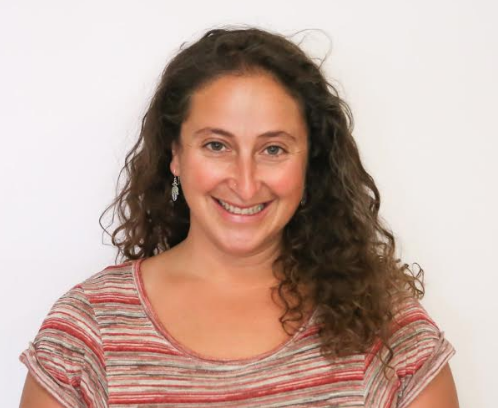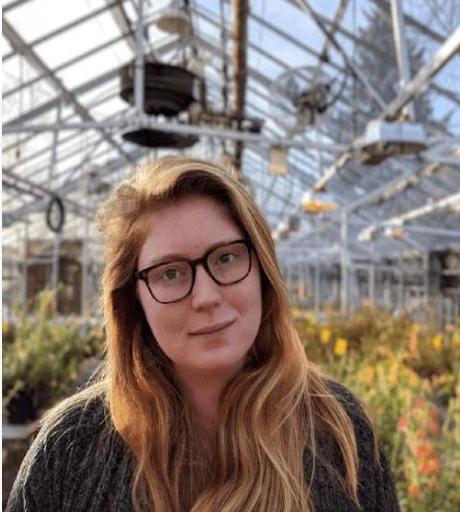OSU Small Farms Conference – February 18th
Nick Andrews, OSU Organic Vegetable Extension – Nick is an associate professor of practice in the Center for Small Farms & Community Food Systems. He focuses on organic vegetable production, cover crops, nutrient management and pest management.

Melina Barker, Oregon Farm to School & School Garden Network – Melina Barker is Director of the Oregon Farm to School and School Garden Network. She was previously involved as the Program Director for Rogue Valley Farm to School in Southern Oregon for 12 years.
Beth Hoinacki- Beth Hoinacki lives at Goodfoot Farm, a certified Biodynamic and organic diversified market farm in the Coastal foothills of the mid-Willamette Valley, where she farms full time and wholeheartedly. Over the past decade the farm has taught her to pay as much attention to the people with whom she works as she does the farm and the market they serve. It is her belief that focusing on the relationships between and among the people in our farm and food systems is critical for success in playing the long game of supporting Life on Earth.

Yana Ludwig – Yana is a cooperative culture pioneer who developed her work living and working in co-ops. She has been a trainer and consultant with cooperative groups for 17 years, is the co-author of The Cooperative Culture Handbook, and author of Together Resilient: Building Community in the Age of Climate Disruption. Yana is the Executive Director of North Coast Food Web in Astoria, and has served on the Board of the Foundation for Intentional Community for a decade.

Nellie McAdams, Oregon Agricultural Trust – Nellie McAdams is an attorney and founding Executive Director of Oregon Agricultural Trust. She is involved in advocacy for farm succession planning and farmland preservation.
Brigid Meints- Brigid is an Assistant Professor, Senior Research whose research focuses on organic barley and dry bean breeding at Oregon State University. She also spends part of her time with the OSU Center for Small Farms and Community Foods Systems as an Organic Grains & Pulses Extension specialist. She grew up in Corvallis, OR and developed a love for plants at a young age. She earned a BA from Scripps College in Anthropology and Gender & Women’s Studies, but found her way back to plants after graduation when she began working for the barley breeding program at OSU. She earned her MS from OSU in Crop Science with a focus in Plant Breeding & Genetics and completed her PhD in Crop Science at Washington State University.

Alice Morrison, Friends of Family Farmers – Alice Morrison is the Organizational Director for Friends of Family Farmers. She has worked in food production through organic vegetable farms and farmers markets for a number of years. She currently serves on the board of the Oregon Farmers Market Association alongside her work with Friends of Family Farmers.

Lucas Nebert is a sustainable agriculture researcher who specializes in soil health (M.S. Wageningen University, Netherlands) and plant and soil microbial ecology (Ph.D. University of Oregon Environmental Studies), and he has been working with the Oregon State University Dry Farming Project since 2018. Lucas has led dry farming research projects involving microbial inoculants, participatory variety trials, crop breeding, and agrovoltaics. HIs dry farming outreach efforts include the Dry Farming Accelerator Program and working as a board member for the Corvallis-based Dry Farming Institute nonprofit. He is passionate about dry farming with staple crops, and his primary focus is on breeding culinary field corn varieties to thrive in the Pacific Northwest under dry farmed conditions.

Michele Thorne- Michele is the Good Meat Project’s second Executive Director, and she works in partnership with her staff, Board, collaborating organizations, government agencies and subcontractors to support and expand the GMP’s programmatic work that helps connect stakeholders across the meat value chain to its shared values of transparency, collaboration and inclusivity. Michele is a dynamic educator, graphic designer and strategic marketer by trade, a zealous local and good food advocate, author and chef by choice, and a small livestock producer in Oregon by destiny, with over twenty years of impactful work, building resilience across the food value chain – from production to packaging, and from coast to coast. As a data driven creative, Michele is fueled by curiosity and uses a unique approach to problem solving rooted in game theory and critical thinking. She is an authentic and active listener, life-long learner and enthusiastic participant of transformative change, especially in food systems. She’s earned a BA in Communication Arts and Design and an MBA in Sustainable Business, and lives in Southern Oregon with her life partner and two of the friendliest shepherds ever, Leo and Shasta. Her favorite good meat meals include grassfed short ribs or lamb chops.

Josh Volk- Josh Volk runs Cully Neighborhood Farm, a small urban CSA, and does bookkeeping and consulting for multiple other farms in the Portland area and beyond under the business name Slow Hand Farm. He is the author of the books “Compact Farms” and “Build Your Own Farm Tools” and is a regular contributor to Growing For Market Magazine.

Elizabeth Dean- A beginning farmer and compassionate advocate who believes that equity and advocacy are fundamental for long term change. With a penchant for monitoring and analyzing agricultural movements and uncovering exploitation in the US food system, I am deeply committed to pursuing a career in advocacy and education.

Hayley Park- Hayley is the co-founder and farmer of Underground Seed Company, which she runs with her husband on their farm in the beautiful McKenzie Valley of Oregon. Underground Seed Co. focuses on providing seeds of a diversity of beautiful, interesting, and delicious dry beans (along with a few other grain crops)! Off the farm Hayley works with small grains in her PhD program at Oregon State University, where she is researching microbiome-mediated genetic resistance in wheat. Hayley aspires to bring humor and practicality to all of her work, while never losing touch with the humble joy of having dirt melded into her hands.

